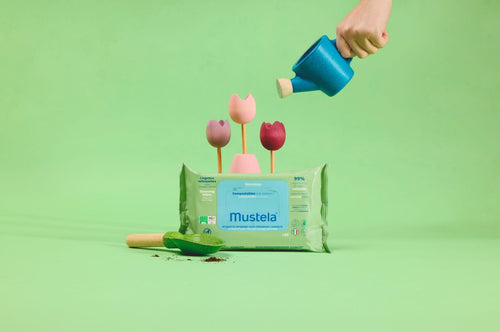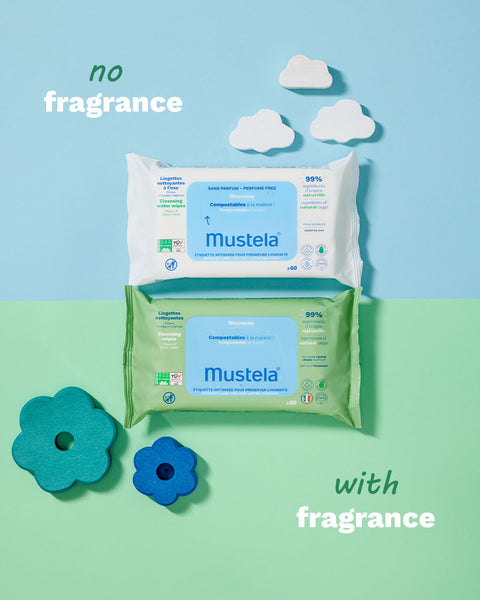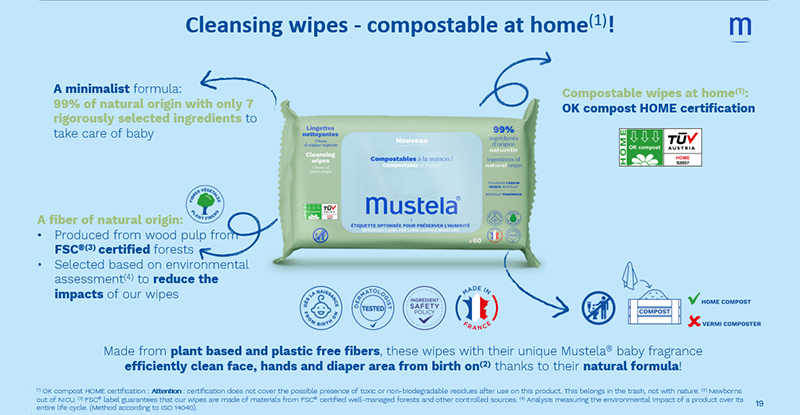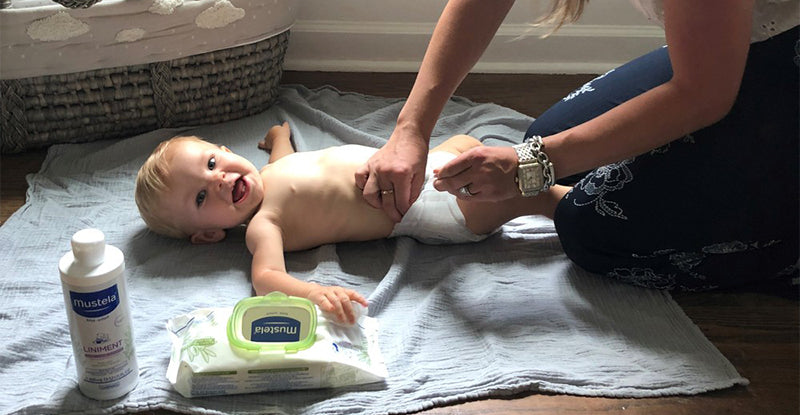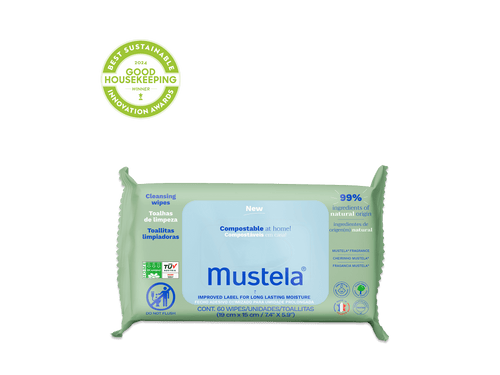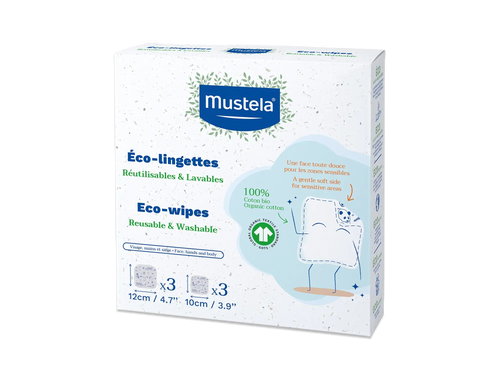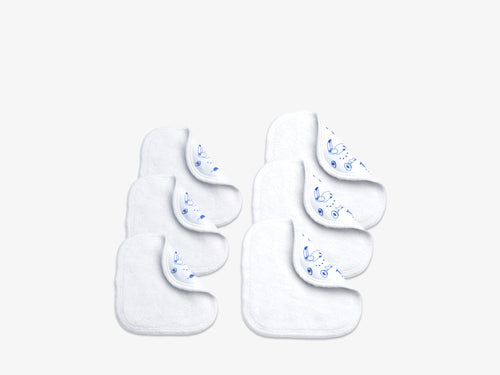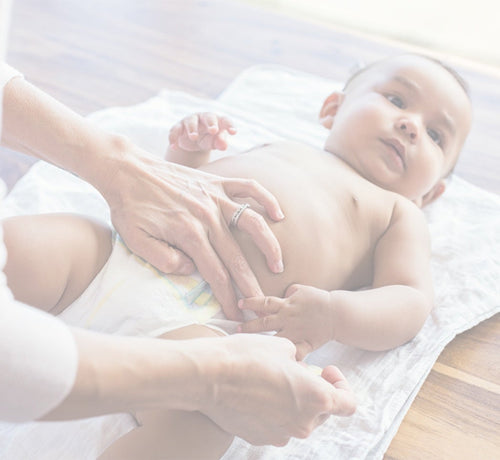Wipes make diaper changes and cleaning up messes a breeze, but at what cost? Traditional baby wipes are made of plastic fibers that don’t break down in landfills. They’re not great for the environment. That’s where compostable wipes and flushable wipes come in.
Both types of wipes are more eco-friendly since they’re made from biodegradable materials. But what’s the difference between the two? Is one of them better for the environment than the other?
Before we start the comparison between flushable and compostable wipes, it’s important to understand what composting is. Let’s take a look.
Table Of Contents
- What Is Composting?
- Compostable Wipes Vs. Flushable Wipes
- Mustela’s New Compostable Wipes
- How To Compost Wipes At Home
What Is Composting?
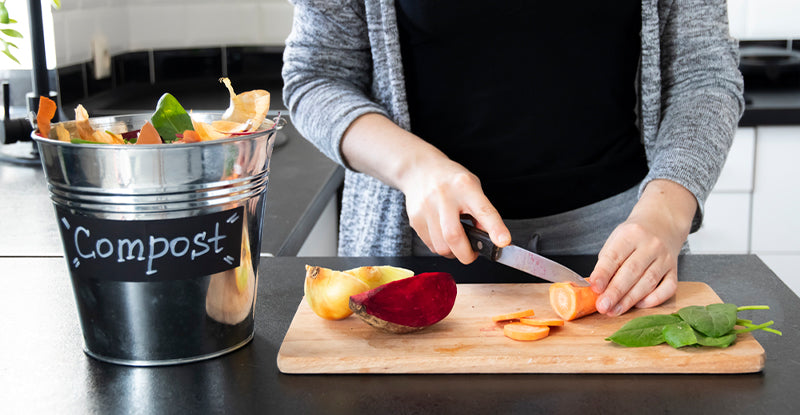
Do you know where you can see the circle of life play out in real time? In your backyard compost pile!
Composting is a natural process of decomposition in which organic matter, like food scraps and shredded leaves, breaks down into a nutrient-rich soil amendment. It’s nature’s way of recycling and replenishing the earth.
By starting a compost pile, you decrease the waste that goes into landfills and contribute to a healthier, more sustainable environment. Plus, you get free organic fertilizer for your plants.
But before you start piling up all of your waste, you need to know what can and cannot be composted.
What Can Go In A Compost Bin
In order for the microorganisms to move in and work their magic, a compost pile needs the right ingredients. You can add things from three different categories: kitchen waste, household waste, and green and brown garden waste.
Let’s look at each more closely.
Kitchen Waste
Do you ever throw food into your trash can? Most likely, the answer is yes. Kitchen waste represents 21% of our landfill space, which is staggering since most food waste is compostable.
Fruits and vegetable scraps, eggshells, coffee grounds, tea bags, and nut shells are great additions to your compost pile.
Household Waste
You can add certain household items to your compost pile along with kitchen waste. These include shredded newspapers, torn paper towels, compostable wipes, and cut-up cardboard. Hair and nail clippings can also be added.
Green And Brown Garden Waste
The final ingredients for your compost pile come from nature itself. Green and brown garden waste provide the carbon and nitrogen necessary for decomposition.
Green waste includes:
- Lawn clippings
- Weeds (without seeds)
- Leftover garden plants
- Note: Your kitchen scraps are also considered “green.”
Brown waste includes:
- Shredded leaves
- Straw or hay
- Twigs and cut-up branches
Note: Your household waste is also considered “brown.”
For your compost pile to thrive, it needs a balance of green and brown waste. Too much of either can throw off the decomposition process, resulting in smelly or slow compost.
What Not To Put In A Compost Bin
While you can safely add most organic matter to your home compost pile, there are a few things you should never add. These include:
- Meat and dairy products
- Fats or oils
- Dog or cat waste
- Bones
- Used cat litter
- Plants with diseases
These items can attract pests and create unpleasant odors in your compost. They also take longer to decompose and can introduce harmful bacteria into your pile.
Compostable Wipes Vs. Flushable Wipes
Since traditional wipes don’t break down well, manufacturers have started producing more eco-friendly, biodegradable wipes. The main options are flushable and compostable.
While both may seem sustainable, there are some key differences. Before we dive into them, let’s define a couple of terms.
- Biodegradable items can be broken down by microorganisms into natural elements in a certain amount of time, depending on the temperature and environmental conditions.
- Compostable products, made from biodegradable materials, break down quickly in the right environment and don’t harm the ecosystem.
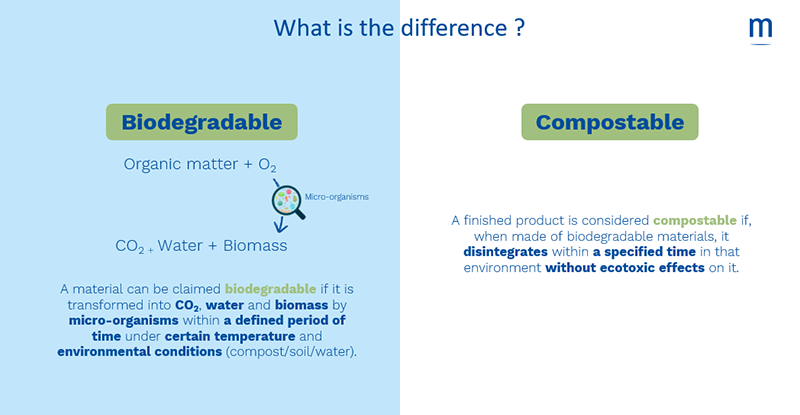
In short, all compostable items are biodegradable, but not all biodegradable materials are compostable.
What Is A Flushable Wipe?
Now that you understand the difference between biodegradable and compostable, let’s look at flushable wipes.
These wipes are marketed as being safe to flush down the toilet. They’re made from biodegradable materials and are supposed to break down quickly once they’re flushed.
Flushable Wipes: Pros And Cons
At first glance, flushable wipes seem like a good solution. They’re hygienic, convenient, and made from biodegradable materials, so you’d think they’d be good for the environment.
But, unfortunately, not all flushable wipes work as expected. Many contain microplastics, which break down into smaller pieces but don’t completely decompose. These particles can pollute waterways and harm marine life.
In addition, since they don’t always break down quickly, flushable wipes can block pipes, leading to costly plumbing repairs.
What Is A Compostable Wipe?
Compostable wipes are also made from biodegradable materials. They’re soft on your baby’s skin and provide gentle cleaning.
But instead of throwing them away or flushing them down the toilet after you’ve used them, you add them to your compost pile, along with your other organic waste. Within six months, the microorganisms will have completely broken down the wipe — making it disappear.
Compostable Wipes: Pros And Cons
Putting your wipes in a compost bin may not be as convenient as flushing them down the toilet, but it has many benefits.
Composting diverts waste from the landfills and produces a soil amendment that can help your garden grow. Plus, you won’t have to worry about your sewer backing up.
Mustela’s New Compostable Wipes
At Mustela, we believe in taking care of both your baby and the environment. That’s why we’ve created our new Home Compostable Wipes, also available in a fragrance-free option.
Our wipes are made from 99% ingredients of natural origin and plant-based fibers. They contain only seven ingredients, none of which are microplastic.
And, like all our products, they are free of parabens, phthalates, and phenoxyethanol.
But what makes our wipes truly unique is that you can add them to your personal compost bin. They’re home-compostable, which means you don’t have to send them to your city’s commercial composting facility.
Instead, they’re designed for a smaller, cooler compost pile, like you might have in the backyard
Why We Chose Compostable
While reformulating our wipes, we had two primary goals: to create a gentle wipe that parents can feel confident using on their baby and to reduce our environmental impact so we can create a better future for those babies.
After extensive research, we discovered that a compostable wipe could do both. We dove into creating a wipe that was just as good at cleaning as our previous formulas but with the added benefit of being compostable.
We became one of the first baby wipe brands certified by TÜV Austria as OK to compost at home.
How To Compost Wipes At Home

This might sound obvious, but it’s worth stating. Only add compostable wipes to your compost pile. Otherwise, they may never fully break down and could introduce harmful microplastics to your compost.
At first, composting wipes may seem awkward, but it’ll soon become second nature. If you don't have access to a public compost, follow these instructions:
1) Add Materials To Your Compost Bin
The first thing you’ll want to do is add a balanced mixture to your composter. Layer in 60% green waste (fruit and vegetable scraps, grass, coffee grounds) and 40% brown waste (dry leaves, twigs, untreated wood chips, shredded paper).
Be sure to add ingredients from the categories we discussed earlier. That’ll give your compost a good balance of carbon and nitrogen, which ensures the microorganisms have the nutrients they need to feed and multiply.
Toss In The Wipes
Once you’ve verified that your wipes are compostable, change your baby’s diaper like normal. Then, instead of throwing the used wipes into the trash can or flushing them down the toilet, simply toss them into a container to take out to your compost bin later.
When you’re out and about, keep the wipes in a compostable bag inside your diaper bag. You can put the whole thing in your backyard compost when you get home.
2) Adjust The Moisture Level
Make sure your mixture is moist enough to activate decomposition (but not too moist or it will rot!). Pour some water in to balance the moisture if needed.
3) Stir And Watch The Wipes Break Down
Each time you add more wipes (or other waste) to the compost pile, give it a good stir. This adds oxygen to the pile and speeds up the decomposition process.
Within six months, your wipes will have broken down completely and become rich compost. And though the compost pile will need to cure before you use it in your garden, it’ll be worth the wait!
Mustela: Good For Your Baby And The Planet
Composting is an easy yet impactful way to reduce waste and create a sustainable future. By using Home Compostable Wipes and other eco-friendly products from Mustela, you’re taking care of your baby’s delicate skin while taking steps toward protecting our environment.
Together, we can make a difference and create a cleaner, healthier planet for our children.


